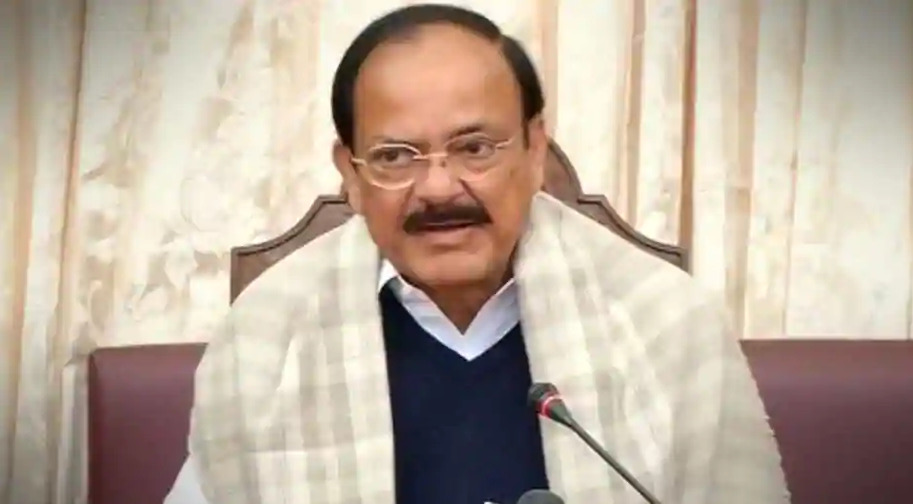A little more than 10 days after the festival of Diwali culminated amidst the ubiquitous rancour of the eco-fascists of the country regarding the firecrackers and the ban on them—Vice President of the country Shri Venkaiah Naidu whilst addressing the two-day 80th ‘All India Presiding Officers’ Conference held at Kevadia in Gujarat, where President Ram Nath Kovind was in attendance, made some inspiring remarks about the judiciary of the country and how the judicial process and the subsequent decisions by the judiciary had blurred the lines between different organs of the government.
And Naidu not only touched upon the firecrackers ban but also raised a pertinent point to the judiciary about the appointment of judges and how the executive was being entirely kept out of the loop.
Curbing Diwali fireworks, denying the executive a role in the appointment of judges, and monitoring investigations are judicial pronouncements giving a “distinct impression of over-reach,” said Naidu on Wednesday underlining that the legislature, executive, and the judiciary should respect “jurisdictional sanctity enshrined in the Constitution instead of arrogating (to) themselves a sense of supremacy”.
Even in the United States, where there is a strict separation of powers between the three arms of the state, the executive and the legislature play a vital role in the appointment of judges of the Supreme Court. Whereas in India, the legislature has no role in the appointment of judges while the executive has minimal say in the matter.
An attempt to introduce the role of legislature and executive in the process through the National Judicial Appointments Commission (NJAC) was struck down by the judiciary as void and thus the point raised by the Vice President becomes ever so important.
“Occasionally, concerns have been raised to whether they are entering the domains of the legislative and executive wings. There have been debates whether some issues should have been more legitimately left to the other organs of the government. For example, Diwali fireworks, steps on registration and movement of vehicles from the National Capital Region through Delhi, banning the use of vehicles of certain make after 10 or 15 years, monitoring police investigations, denying the executive any role in the appointment of judges by instituting the collegium, which is said to be an extra-constitutional body,” Naidu said.
Saying such actions by the judiciary “have resulted in an avoidable blurring of the contours demarcated by the Constitution,” Naidu further added, “They have led to the question as to how these three organs of the state should respect the jurisdictional sanctity enshrined in the Constitution instead of arrogating (to) themselves a sense of supremacy,”
The seasonal eco-fascist, NGT, which pops up during Hindu festival just like frogs appear in the rainy season, had issued a notice to the Ministry of Environment and Forests (MoEF) and four State governments on the ban of firecrackers from November 7 to 30 in the interest of public health and environment.
The Supreme Court had also refused to interfere with Calcutta High Court’s November 5 decision to ban the use of firecrackers during Diwali and other forthcoming festivals this year, citing COVID-19 pandemic as the main cause.
The fireworks industry in Sivakasi, which employs around 8,00,00 to 10,00,000 people, directly or indirectly with a mind-boggling turnover of about Rs. 60 billion was once again left to fend for itself right at the end of the Diwali season—their busiest season to earn the revenues. The ban which was rejoiced with brimming enthusiasm by the pseudo-liberals and pseudo-secular factions of the society had left the firework industry in Sivakasi in tatters.
What the judiciary failed to account for was the fact that pollution is a 365-days problem in a country like India and up until now, there has been no study that can prove with utmost certainty that firecrackers have a major part to play in the increasing pollution levels. A day after Diwali, the AQI figures were not astronomically off the charts in the capital city, suggesting that it was a normal Delhi day where the AQI level hovered between ‘Dangerous’ and ‘Severe’. The point being driven home is that one day of celebration could not choke a city which itself remains drenched in a thick haze of smog, almost throughout the year, without any firecrackers around.
And if indeed the courts and NGT are serious about curtailing the menace of pollution, then such sweeping decisions of banning firecrackers should be implemented throughout the year, not just before the festival season, as an ornamental decision to wash hands of the responsibility.
Naidu has talked about judicial reforms with terrific nuance and any independent judiciary should be willing to accommodate such constructive criticism in its stead. Thus, judicial reforms are the need of the hour and the Vice President’s statements should only amplify the voices of those seeking such from the illustrious judiciary of the country.
